Are you feeling uncertain about your college admission decision? You're not alone, and there's a way to address it through an appeal letter. Writing an effective appeal can significantly increase your chances of gaining admission, providing you with a chance to present your case in a compelling manner. Join us as we explore essential tips and a template to help you craft the perfect appeal letter!

Purpose and clarity of appeal
College admission decisions can significantly impact a student's future. An appeal highlights the reason for reconsideration, such as new academic achievements, personal challenges, or changes in circumstances. A clear purpose statement outlines the specific reasons for the appeal, emphasizing commitment to academic success and personal growth. This can include improved GPA after a consistent struggle, notable extracurricular contributions, or extenuating circumstances, like a family emergency impacting previous performance. Clarity in outlining these points ensures the admissions committee understands the context and rationale for the reconsideration, ultimately advancing the student's case for admission.
Relevant personal circumstances
The challenging transition to college can be further complicated by unexpected personal circumstances, such as a family member's illness, job loss, or mental health struggles. These factors can significantly impact a student's academic performance and overall well-being. For instance, a student struggling with a parent's critical health condition, such as cancer treatment during their senior year, may find it difficult to maintain the same level of focus and energy in their studies. Additionally, financial strains due to a parent's unemployment can lead to stress and anxiety, affecting academic performance as well. Schools like Harvard and Stanford evaluate these nuances when considering admissions and appeals, ensuring a fair understanding of an applicant's situation. Detailed documentation of personal struggles, including doctor's notes or therapist letters, can support these circumstances during the appeal process, offering insight into the challenges faced and the resilience demonstrated in overcoming them.
Evidence and documentation support
A college admission appeal requires comprehensive evidence and documentation to support the case for reconsideration. Strong emphasis on academic performance includes GPA scores (such as a 3.5 or above) and standardized test results (like SAT or ACT scores, typically ranging from 1200 to 1600). Additionally, personal circumstances should be detailed, including any extenuating events, such as a family illness or economic hardship, which can illustrate the context behind academic challenges. Letters of recommendation from teachers or community leaders can provide valuable insights into the applicant's character and potential. Extracurricular involvement, documented through awards or leadership positions in clubs, can further emphasize commitment and skills. Collecting evidence of any significant progress during the senior year, such as grade improvement or new achievements, strengthens the appeal. Overall, each piece of documentation should clearly reflect the applicant's resilience, capabilities, and passion for their chosen field of study at the institution in question.
Demonstration of improvement or change
A compelling college admission appeal can effectively showcase an applicant's commitment to academic improvement. Highlight recent academic achievements, such as a GPA increase or specific honors received in high school courses, perhaps demonstrating a rise from a 2.5 to a 3.5 GPA over two semesters. Mention participation in extracurricular activities or community service, like volunteering over 100 hours at local charities in the summer, indicating a dedication to personal growth and service. Include insights into any challenges faced, such as personal or family issues during the application period, reflecting resilience and determination to overcome adversity. Emphasize a clear plan for future success, including specific coursework or programs of interest at the institution, such as enrolling in mentorship initiatives or academic support resources, to highlight a proactive approach to ensuring continued academic achievement.
Tone and professionalism in communication
When writing an appeal for college admission, professionalism and tone are paramount. Effective communication showcases respect for the institution's decision while expressing genuine passion for attending. Candidates typically highlight their academic achievements, letters of recommendation, or personal circumstances impacting their application, ensuring clarity and conciseness. Should universities opt for virtual admissions interviews, applicants must prepare by researching program specifics, articulating their motivations, and understanding the institution's values to align their narrative with the college's mission, boosting chances for reconsideration.
Letter Template For College Admission Appeal Samples
Letter template of college admission appeal for academic performance reconsideration
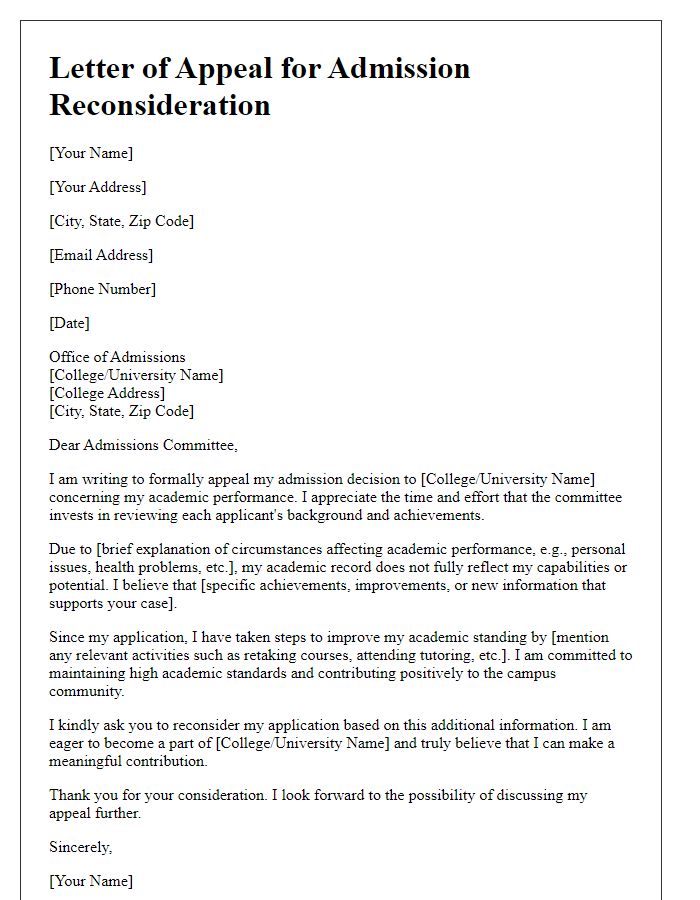
Letter template of college admission appeal due to extenuating circumstances
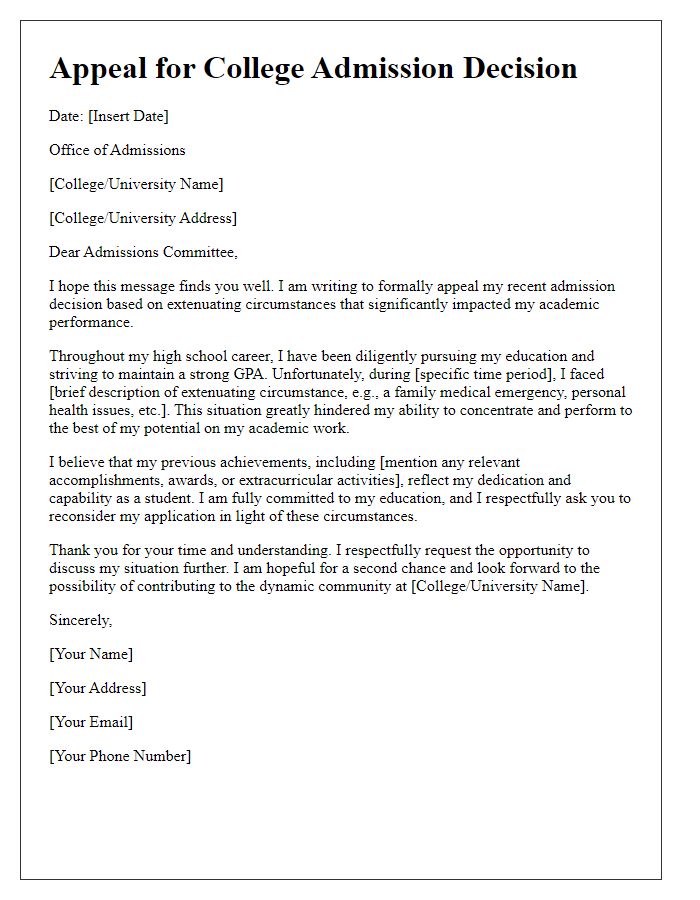
Letter template of college admission appeal for personal statement enhancement
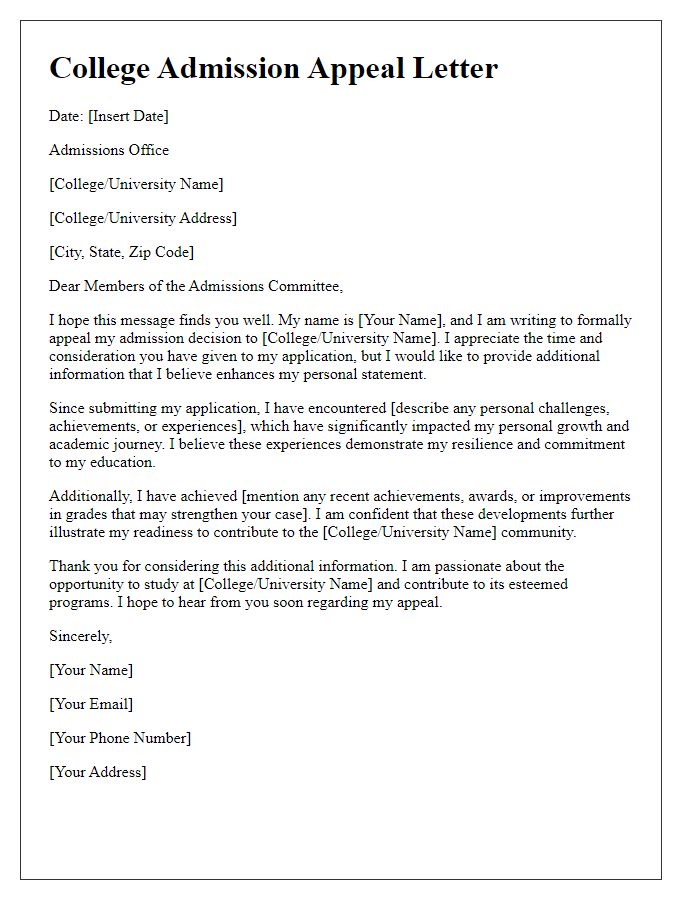
Letter template of college admission appeal highlighting new achievements
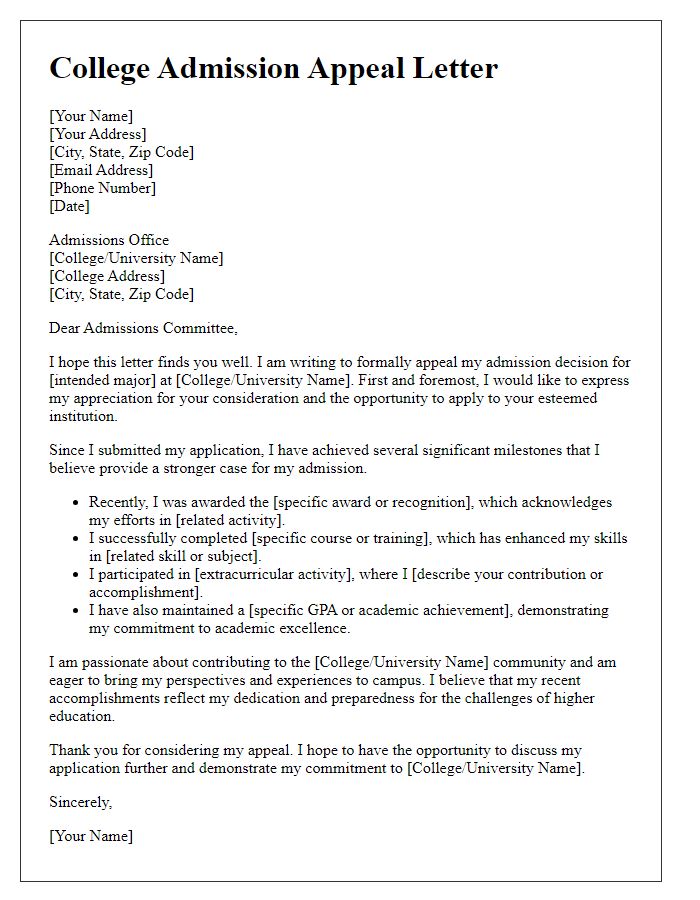
Letter template of college admission appeal focusing on major-specific interest
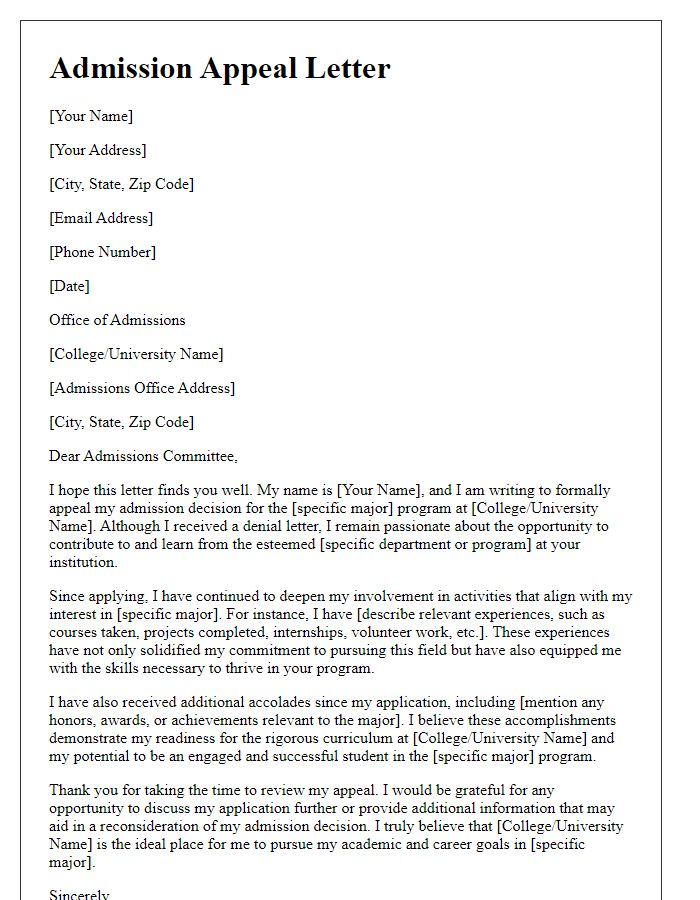
Letter template of college admission appeal after receiving additional letters of recommendation
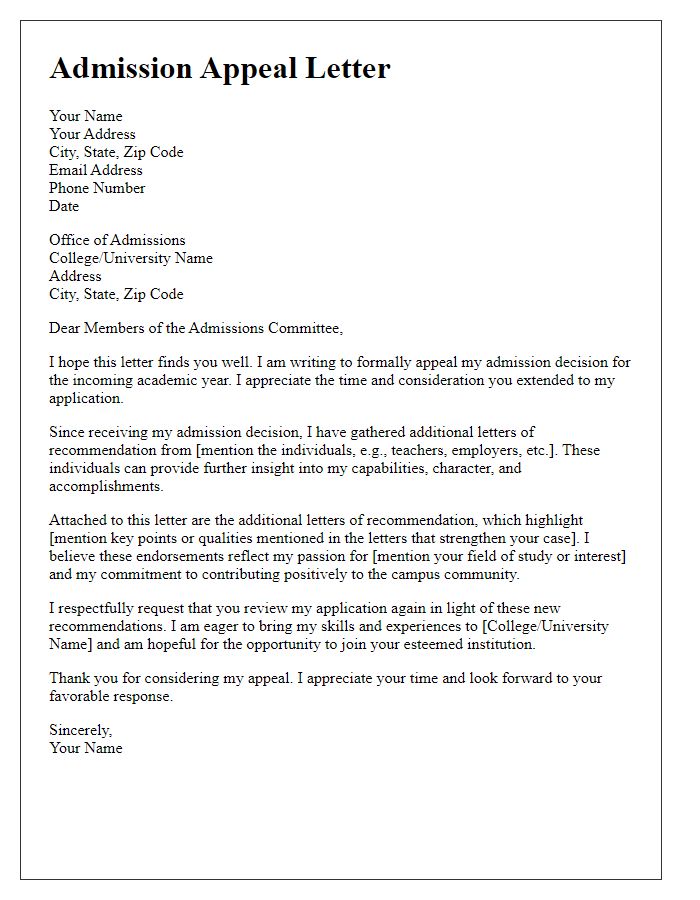
Letter template of college admission appeal addressing application errors
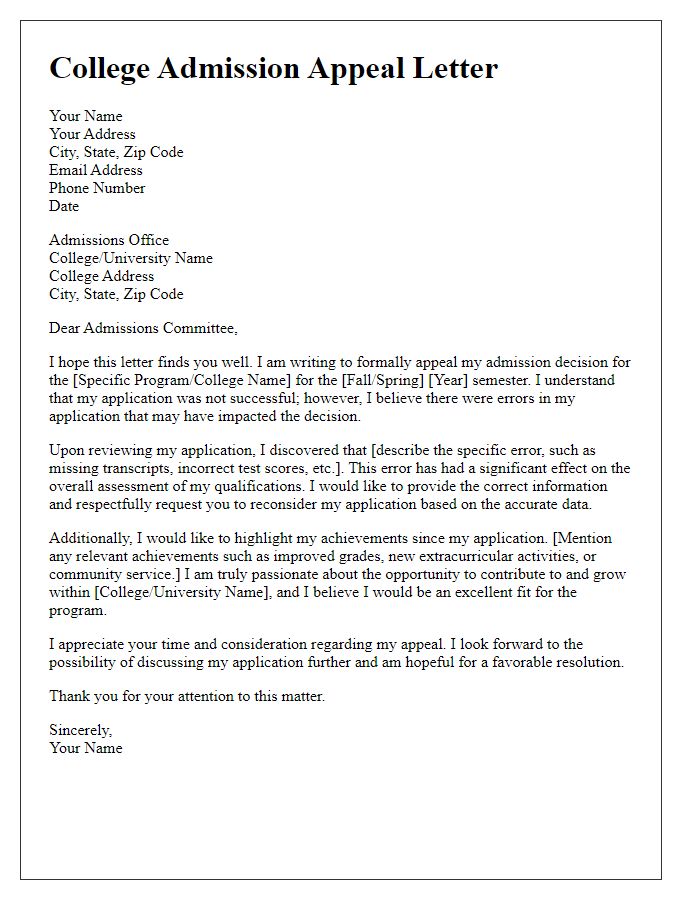
Letter template of college admission appeal for enrollment deferral request
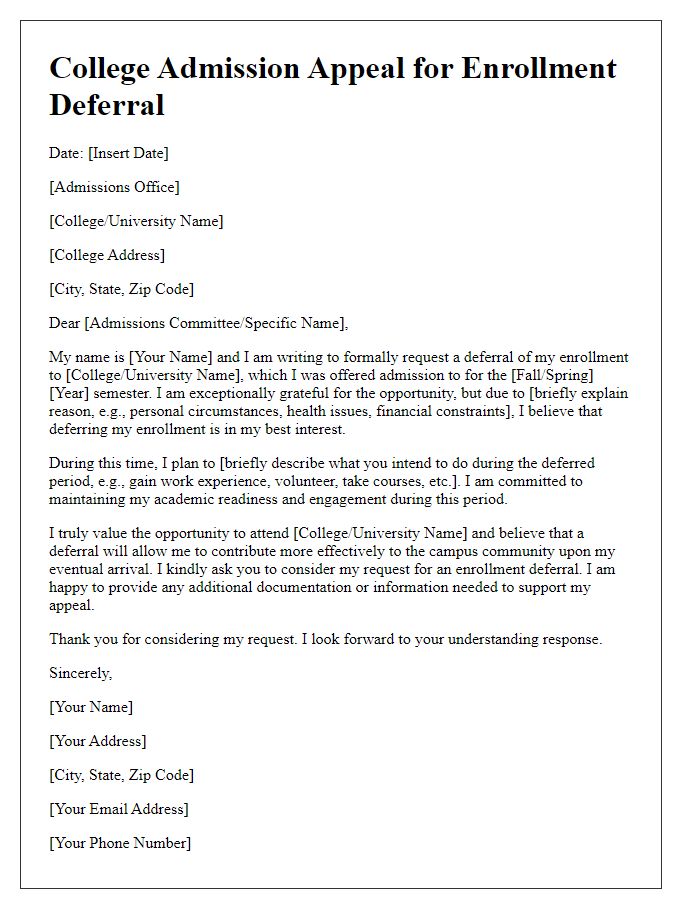
Letter template of college admission appeal emphasizing community service involvement
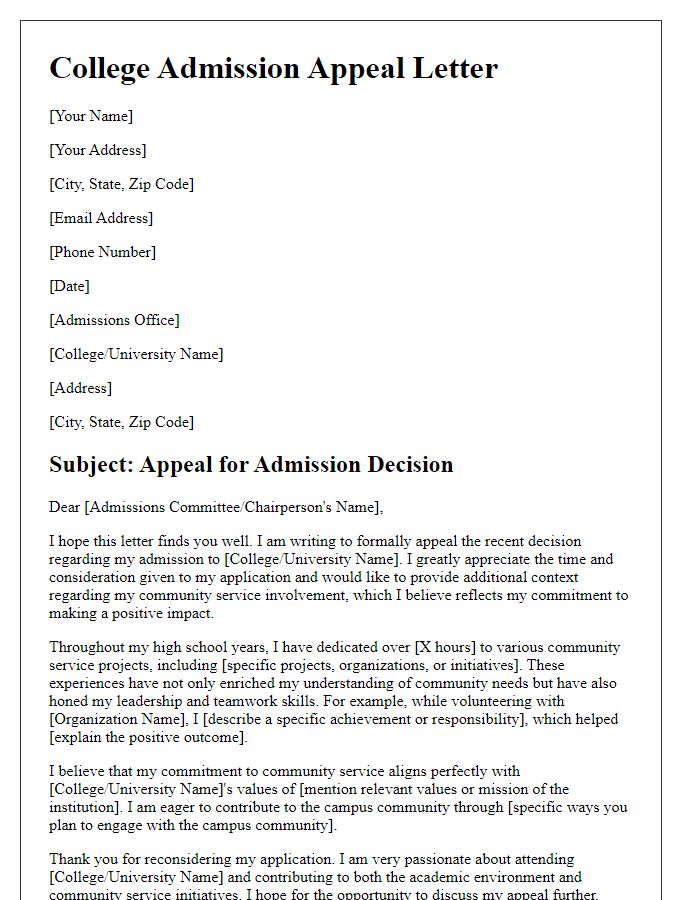

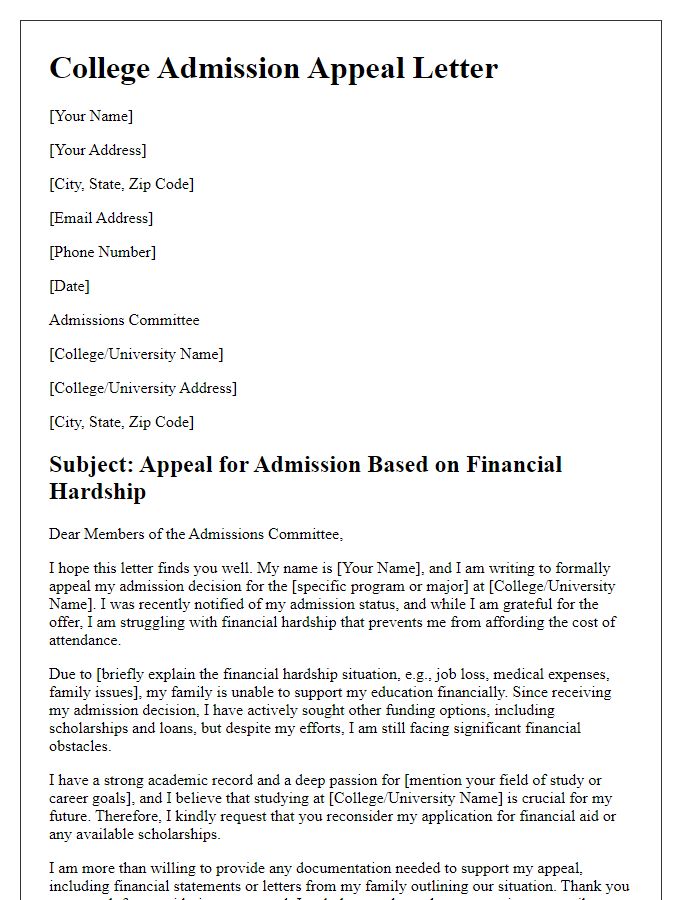


Comments